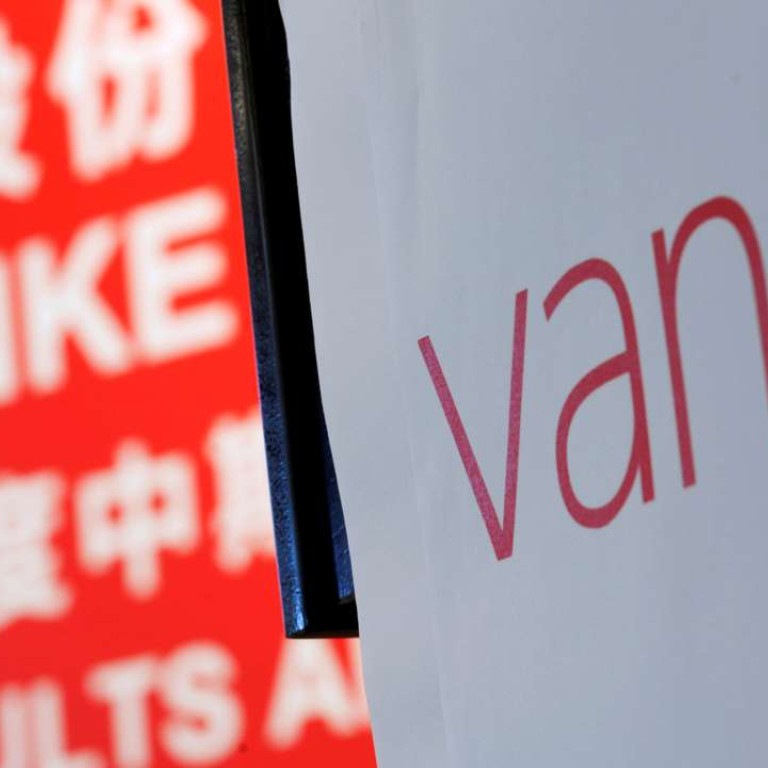
Update | Vanke’s management prevails after year-long takeover tussle, as second and third largest shareholders offload shares
Analysts believe the State-owned Assets Supervision and Administration Commission and Shenzhen government actively stepped in to help Vanke’s top team take back the initiative
China Vanke’s senior management and state-backed Shenzhen Metro Group are set to become the eventual winners of the year-long tussle for control of China’s second largest property developer.
The ending of the country’s highest-ever profile corporate battle has become much clearer after China Evergrande Group, Vanke’s third largest shareholder said in a statement on Friday it “has no intention to acquire further Vanke’s shares” and mainland news site Caixin reported Evergrande plans to transfer its shares to Shenzhen Metro.
That move came a day after Vanke’s second biggest investor, China Resources Holdings, revealed it has agreed to sell its entire shareholding in the Shenzhen developer to Shenzhen Metro.
Shenzhen Metro, which operates eight subway lines in the city, is directly controlled by the Shenzhen Government.
“And we expect Shenzhen Metro to keep increasing its stake in Vanke by buying stocks from other shareholders, including Baoneng (its current largest shareholder with 25.4 per cent), Evergrande (14.1 per cent) and Anbang (6.2 per cent), even at higher prices,” Credit Suisse analysts led by Alvin Wong wrote in a note on Friday.
“This should resolve the long-lasting shareholder issues,” they said.
David Hong, head of research at consultancy China Real Estate Information Corp, said he believes the Shenzhen government ordered Shenzhen Metro to buy into Vanke, in a clear indication the government is on the side of Vanke’s management.
On its own website, Shenzhen Metro stressed it will “support the existing Vanke management team”, after announced it agreed to buy the entire 15.3 per cent Vanke stake owned by China Resources.
Since late 2015, Vanke has been under attack from insurance conglomerate Baoneng which has so far snapped up 25 per cent stake in the developer.
We expect Shenzhen Metro to keep increasing its stake in Vanke by buying stocks from other shareholders, including Baoneng (its current largest shareholder with 25.4 per cent), Evergrande (14.1 pc) and Anbang (6.2 pct), even at higher prices
Baoneng wanted to remove all of Vanke’s board members, including founder and chairman Wang Shi last year – but the proposal was knocked-back at a board meeting.
Meanwhile, state-owned conglomerate China Resources, which had been a supportive shareholder of Vanke’s management, changed its tune and openly denounced Vanke last year when Wang suggested introducing Shenzhen Metro as a “white knight” investor to dilute Baoneng’s shares. The rescue deal failed to gain agreement among major shareholders.
Analysts believe the State-owned Assets Supervision and Administration Commission (SASAC) and Shenzhen government have now actively stepped in to help its management team take back the initiative.
And they believe Shenzhen Metro will be a friendlier shareholder, which will lead to a happier end result for Vanke.
The solution is being able to “strike a balance in the interests of all the parties involved”, said Yan Yuejin, a research director with E-house China R&D Institute.
He said that includes the interests of SASAC, China Securities Regulatory Commission (CSRC), and the Shenzhen government, as well as the corporate raiders and minor shareholders of Vanke.
The clear state interference, however, sounded alarm bells of the respect Beijing places on the original founders and managements of big enterprises, such as Vanke, Yan said.
“We may see less takeover activities in 2017, as a result,” he added.
Credit Suisse analysts said Shenzhen Metro will likely retain most of Vanke’s existing board members, when board re-election is due to be held at its annual shareholder meeting in March.
A stabilisation of the management team should help retain high-quality employees, too, they added, as the firm upgraded Vanke’s mainland A-shares to “Neutral” from “Underperform” on Friday.

